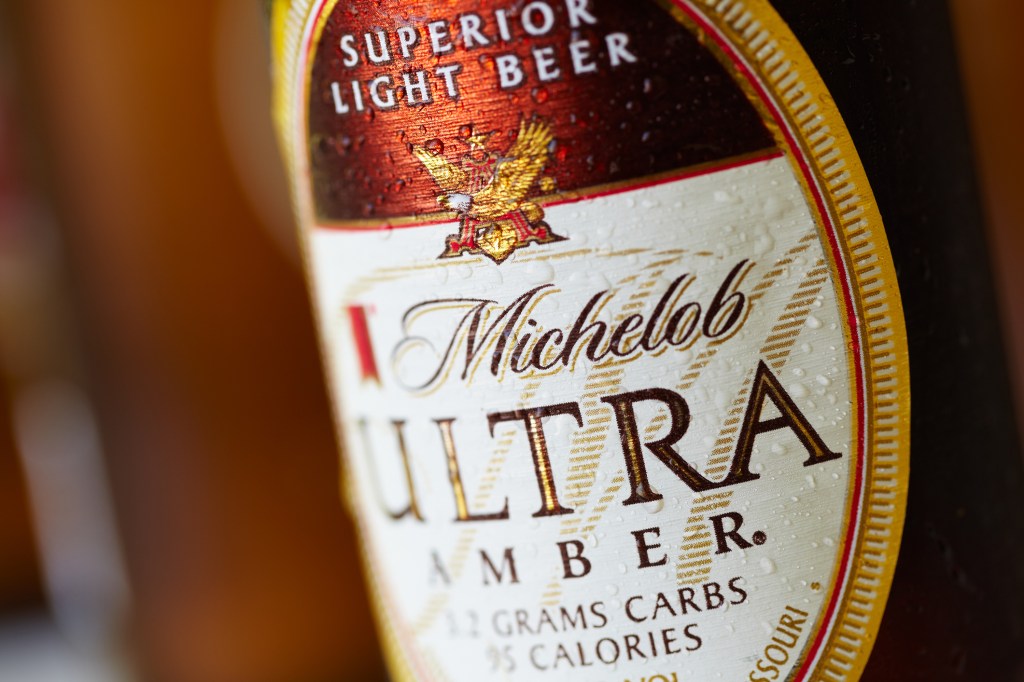What kind of booze pairs well with a legal fight between two beer companies? That’s a question we’ve had to ask this week, after Stone Brewing filed a lawsuit against MillerCoors, with the former alleging that the latter’s newly rebranded Keystone Light line could brew nothing but confusion for customers.
San Diego-based Stone Brewing—the company responsible for that Arrogant Bastard Ale bottle you displayed in your sophomore dorm room—said that MillerCoors is intentionally emphasizing the “STONE” syllable in its Keystone beers, and it’s taking issue with the advertisements and cans that prominently feature that five-letter word. In a lawsuit filed in federal court, Stone Brewing is alleging trademark infringement and a deliberate attempt by MillerCoors to mislead consumers.
Videos by VICE
“Since 1996, the incontestable STONE mark has represented a promise to beer lovers that each STONE beer, brewed under the Gargoyle’s watchful eye, is devoted to craft and quality,” Stone’s attorneys wrote in its surprisingly entertaining legal filing. “Like all Gargoyles, it is slow to anger and seeks a respectful, live-and-let-live relationship with peers and colleagues—even those purveying beers akin to watered-down mineral spirits. But Stone and the Gargoyle cannot abide MillerCoors’s efforts to mislead beer drinkers and sully (or steal) what STONE stands for.”
Last April, MillerCoors redesigned Keystone Light’s cans to read “Stone” in large letters on the sides, and has removed the word “Keystone” and its mountain logo from its cardboard cases as well. In addition, its social media posts and online ads are also “Stone-centric,” with taglines like “Hunt the Stone” and “To Each Their Stone.” Stone Brewing alleges that these design changes are “a concerted effort by MillerCoors to capitalize on the goodwill and recognition associated with the STONE® mark and brand.”
Although MillerCoors has dismissed the lawsuit as “a clever publicity stunt,” it might have at least one historically accurate leg to stand on. In 2007, MillerCoors applied to register “STONES” with the US Patent and Trademark Office (USTPO) for use with its Keystone Light brand, but the application was refused… because of its existing association with Stone Brewing. “Tellingly, MillerCoors did not dispute the USTPO’s determination that its “STONES” mark would infringe STONE when used in connection with Keystone Light,” Stone wrote in its filing. “MillerCoors instead abandoned its application, admitting that confusion with STONE beer was likely.”
Business law strategist and former trademark attorney David Lizerbram weighed in and said that this seems to be an “easy call” for the courts. “The law recognizes that consumers don’t always examine every label carefully, particularly when it comes to relatively inexpensive everyday purchases,” he wrote. “Beer, even the more expensive craft beer produced by Stone, certainly falls into this category. And, in order to prevail on this claim, Stone doesn’t have to prove actual confusion — meaning, they don’t have to produce consumers who bought Keystone Lite on the mistaken belief that it was a Stone Brewing product […] Stone simply has to demonstrate likelihood of confusion.”
Stone is asking for the court to prevent MillerCoors from using the word “stone” in its Keystone Light branding, for the profits it has earned from its use of the trademark, along with “triple the amount of actual economic damages” that it has suffered. In a video posted to YouTube, Stone co-founder Greg Koch said that MillerCoors could “end all of this right here and now” by “[putting] the Key back in Keystone.”
Stone is currently the ninth-largest craft brewer in the US, and it has a lot of reasons to want to protect its trademark—mostly because beer drinkers like its brews a lot more than they like the defendant’s. Keystone Light has a rating of 1.81/Awful on BeerAdvocate. (“It’s as if urine got excreted…then drank…then vomitted [sic]…then the janitor added a pinesol [sic] water mixture to clean it up,” one glowing review began).
None of Stone Brewing’s offerings have a rating lower than 2.99. The one true stone-beer must emerge.




